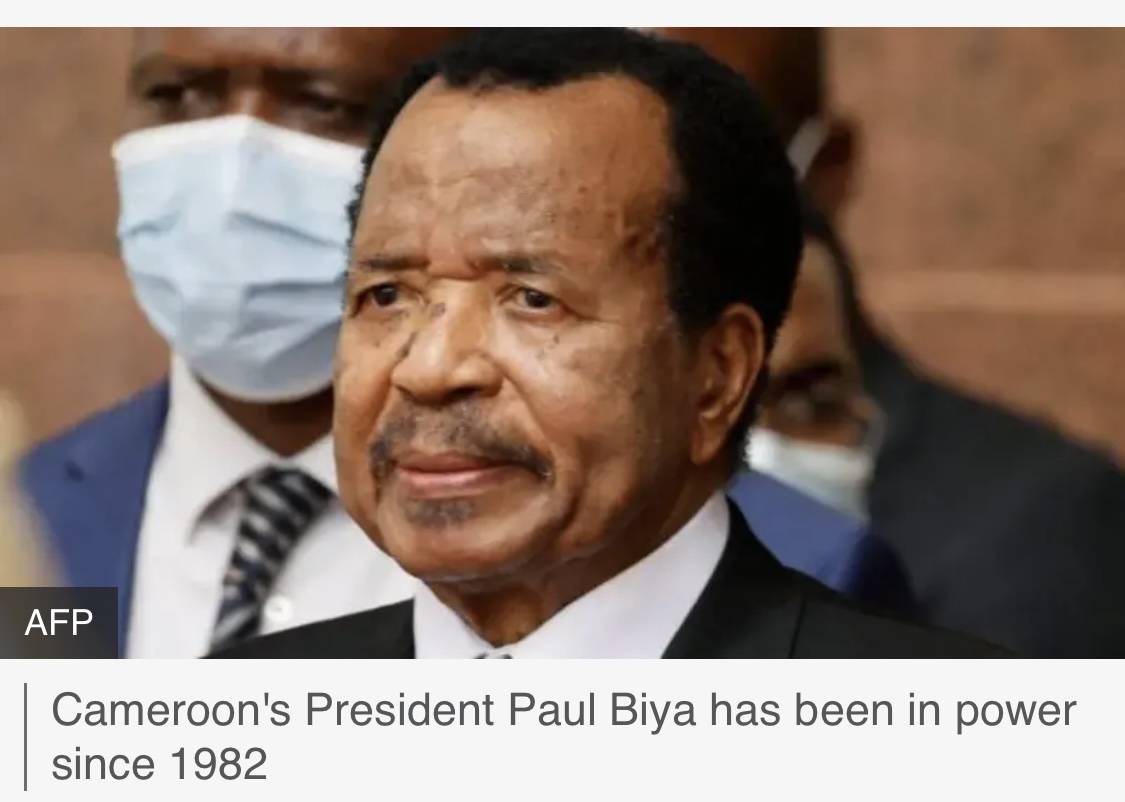Rumors about the health of two African leaders have surfaced in recent weeks, sparking varied reactions and highlighting the secrecy surrounding the health of heads of state in the region. It began with Cameroon’s 91-year-old president, Paul Biya, whose ministers dismissed claims of illness, insisting that he was in "perfect health." In Cameroon, the media is restricted from reporting on his condition.
Following this, Malawi's government also dismissed speculation about President Lazarus Chakwera's health, releasing a video showing him running and exercising in the capital, Lilongwe, to counter the rumors.
Commenting on this tendency for secrecy, Professor Miles Tendi, an expert on African politics at Oxford University, stated, "To dominate politics, you have to show courage—weakness or fatigue cannot be displayed."
Both leaders, Chakwera and Biya, have taken different approaches to dispel the rumors about their health, but their goal remains the same: to project strength and conceal any vulnerabilities. This secrecy is often intended to prevent opponents and critics from gaining insights into their actual health status. Professor Tendi noted that politics is "a matter of courage" necessary for staying in power, and the nature of the political landscape, which demands resilience, can pose challenges for women seeking leadership roles. Currently, Africa has only one female president, Samia Suluhu Hassan of Tanzania, who took office as vice president after the death of her predecessor.
Political leaders in Africa and beyond are often seen as symbols of resilience, making the health of an aging president a significant national concern. The recent U.S. elections highlighted the importance of leaders' health, underscoring the broader implications of their well-being. According to Professor Adekeye Adebajo from the University of Johannesburg, many African leaders equate their health with the stability of their nations, turning health concerns into state secrets. A security expert in Zimbabwe explained that any potential health crisis could impact the economy, financial markets, and the political landscape, leading to a heightened level of caution.
In countries with fragile political systems, the mechanisms for leadership transition are often less robust, raising fears that a power vacuum could trigger conflict. More than 20 years ago, Democratic Republic of the Congo's President Laurent-Désiré Kabila was assassinated by one of his bodyguards, but authorities initially refused to acknowledge his death, claiming he was being treated in a Zimbabwean hospital while they devised a succession plan. Eventually, his untested son Joseph Kabila was appointed as president.
Similarly, in 2012, Malawi's government delayed the announcement of President Bingu wa Mutharika's death, amid allegations of attempts to block Vice President Joyce Banda from succeeding him. However, in neighboring Zambia, where two presidents have died while in office, and in Ghana, where President John Atta Mills passed away in 2012, constitutional procedures for succession were effectively followed.
African leaders have long faced scrutiny over their health. In 2010, former Zimbabwean President Robert Mugabe dismissed persistent rumors about his health as "Western media fabrications." More recently, in 2021, Tanzanian President John Magufuli’s death was announced after weeks of denying his illness, during which authorities had even arrested individuals for spreading "false" information about his condition.




No comments yet
Be the first to share your thoughts!